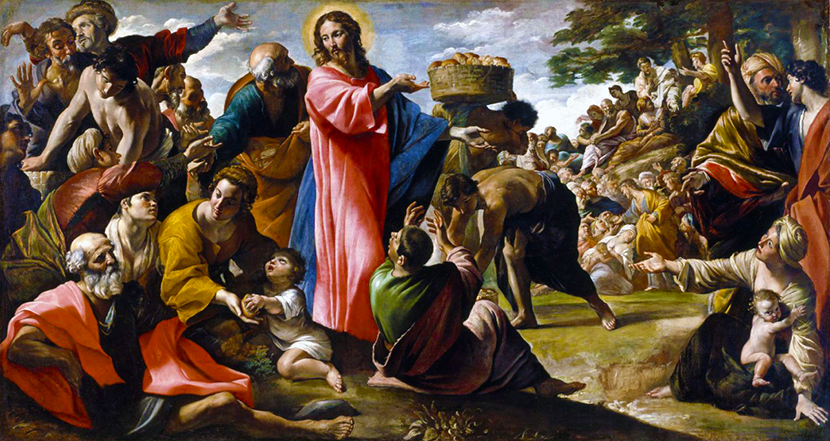In Dostoyevsky’s The Brothers Karamazov, we encounter a deep spiritual truth wrapped in the simplest of language. A woman, her faith withered like autumn leaves, confessed her lack of faith in God to the Elder Zosima. His counsel cut through the air with startling clarity. He told her to cultivate “the experience of active love,” adding that “the more you succeed in loving, the more you’ll be convinced of the existence of God.” This was no mere platitude, but a roadmap to renewal through expressions of love.
Jesus Himself illuminates His path in John 14:23. He declares that love of Him cannot be divorced from obedience to His word. Love, as Jesus taught us, is never abstract—it is an action, a way of being that transforms both giver and receiver. Jesus came to establish the Kingdom of God, a realm that begins its quiet revolution within the human heart and radiates outward, touching every corner of our lives.
In the parable of the Last Judgment in Matthew 25:31–46, Jesus reveals the true measure by which souls are weighed. The righteous are not distinguished by lip service, but by their acts of love—particularly toward “the least of those among us,” those pushed to society’s margins, forgotten and forsaken. This parable unfolds with compassion, at once ordinary and yet extraordinary: feeding the hungry, providing water to the thirsty, welcoming the stranger, clothing the naked, visiting the sick, and comforting the prisoner. Each of these acts and other acts of empathy as well, are utterly practical and healing, showing the importance of ordinary gestures of love in restoring life to ourselves and others. The parable’s most striking revelation comes in its striking conclusion, where the righteous stand bewildered, asking, “When did we see you hungry? When did we see you thirsty? When did we see you as stranger, naked, sick, or imprisoned?” Jesus’ response echoes through the ages with the force of truth: “Truly I tell you, whatever you did for one of the least of these brothers and sisters of mine, you did it for me.”
Herein lies the essence of Christian love: in serving the marginalized, we serve Jesus himself. The hungry child becomes the face of the Savior, the refugee carries his presence, the prisoner bears his image. These are not metaphors but the truth that Jesus has chosen to demonstrate His presence among the broken, the forgotten, and the castaways. To love Him means seeking Him where He promised to be found: among the least, the last, and the lost.
This message of Christian love resounds with prophetic urgency in today’s world, where selfishness has not merely gained ground but has colonized vast parts of human behavior. The chasm between those luxuriating in abundance and those gasping for bare necessities has become a gaping canyon that threatens to destroy the better angels of our nature.
The Gospel offers a radical realignment of power and purpose. While the world builds walls to keep people out, Jesus builds connections to invite people in. While society creates hierarchies, Jesus establishes a Kingdom where the greatest are those who serve. While cultures worship accumulation, Jesus blesses those who share with one another.
The message is clear: If we claim to love Jesus, we must love what He loves and serve whom He serves. His word must not merely reside in our minds but incarnate itself in our hands, our feet, and in our hearts.
In the end, faith without love is meaningless. But faith expressed through acts of love is what the Kingdom on God on earth is all about.
—Fr. Hugh Duffy, Ph.D.








6 Comments
Tom Rooney
Great message as always ,hats off to Daniel
Tom Walsh
“Faith expressed through acts of love is what the Kingdom on God on earth is all about”.
Fr. Hugh, I have not heard or read before Faith expressed in this beautiful context. Thank you for taking the time to compile this article and creating awareness of the situations where the Love of God within me is best served with those in need and God knows, there are so many people throughout the world.
Hugh Duffy
Thanks, Tom, for your comment. The beautiful thing about the three great virtues of faith, hope, and love, is that they are interconnected: You cannot have one without the other. In this blog, love completes faith, as it should, and even gives rise to faith.
Bartholomew Okere
Fr. Duffy, the unfathomable trend that society is seeing the active love of Jesus makes one to wonder the mindset of humanity toward the two greatest commandments of love of God and our neighbor. Selfishness has clouded the very vision of love as you pointed out in Matt 25ff. Even the very nature of Christ which is love itself is being mocked be some and embraced by the few. Thanks for your blog!
Hugh Duffy
“Mocked by some, embraced by the few” describes what’s going on today, Bartholomew. Christ was mocked in His day, and again today.
There’s hope when people help one another, and share the cup of kindness. Every day you get out of bed, it’s a good thing to pause and ask yourself: What can I do today to uplift and be kind to those around me?
Lakeisha Clark
What a beautiful message! If only the world could remember that Abba’s love for us is both powerful and pure. By giving each of us a piece of Himself through the Holy Spirit, He demonstrates His eternal love for everyone. No cultural background, race, or social status can diminish His purpose in dying for our sins. Shalom to you my brother in Christ.
YOU MIGHT ALSO LIKE
True Leadership
Pope Francis
Easter: A Message of New Life